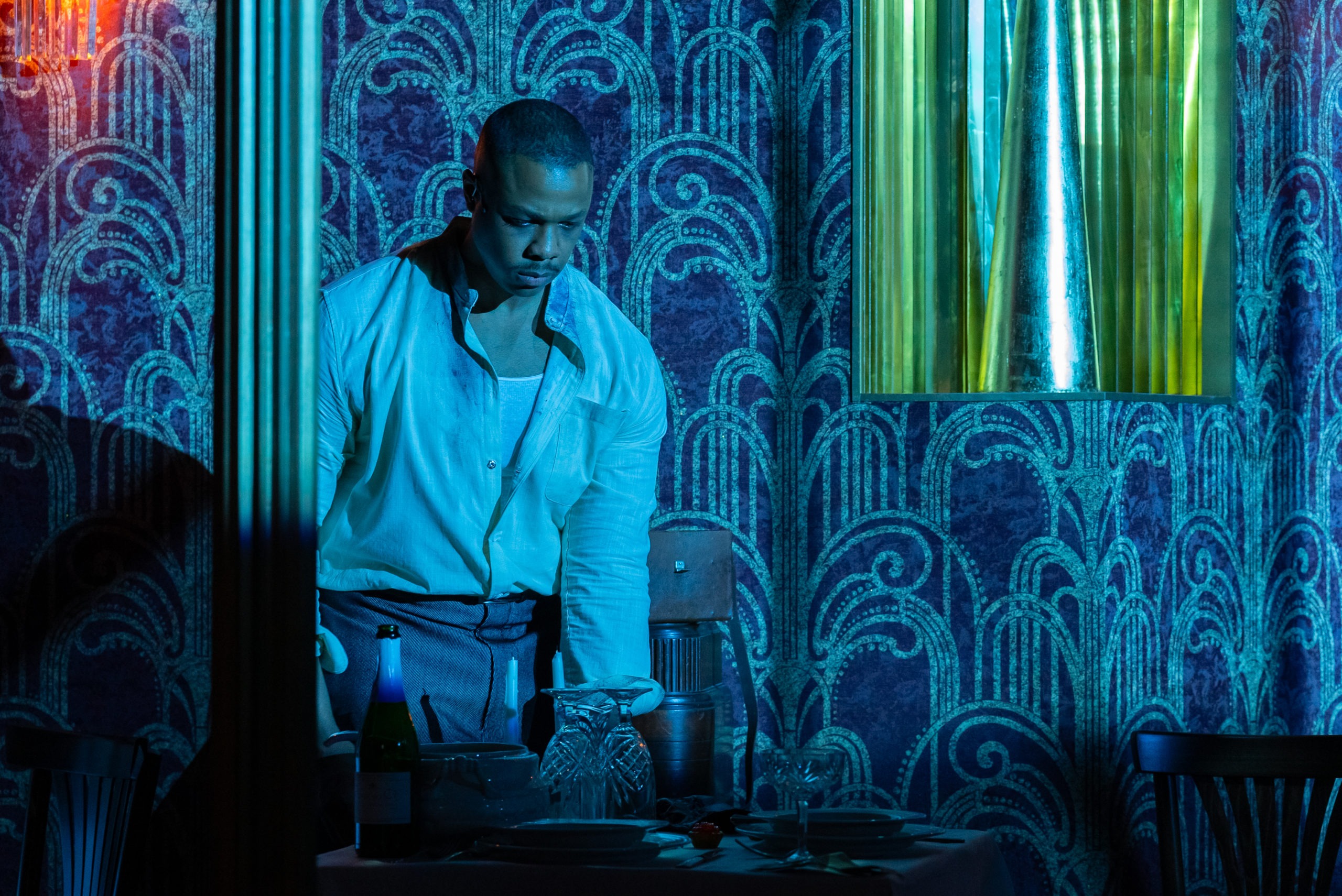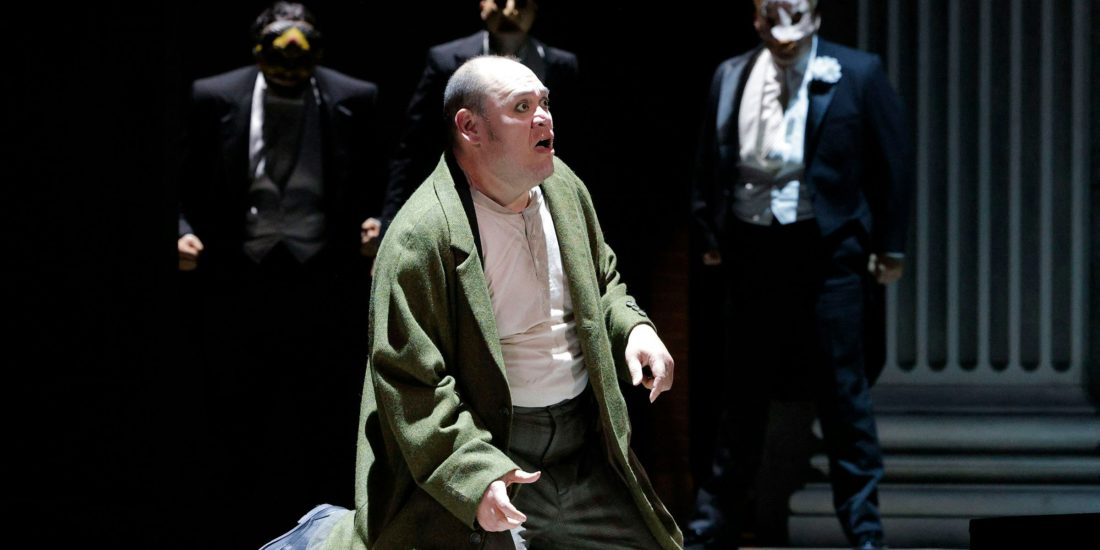

Let’s start thinking of opera as evolutionary rather than decaying. Let’s consider the experience of going to the opera as a way of thinking and feeling that will benefit us outside the theater… Let’s begin by imagining that… opera is not a thing but a mechanism for a meeting of minds, spilling beyond convention… Not the confirmation or the illustration of accepted values, but an ambiguous search for what is unclassifiable and unspeakable…
If opera can reclaim the spirit of intuition and momentary grace that music captures, it will be able to dust off its deadening layers of object worship and reignite the essence and importance of true ritual. — Yuval Sharon*
In theory and dazzling practice, director Yuval Sharon has been instrumental in the contemporary renewal of opera—not as an end point but rather the ongoing cycle of rebirth, death, and rebirth intrinsic to the form. As the founder of the Los Angeles company The Industry and artistic director of Detroit Opera, Sharon is a beacon of the avant-garde, and his startling performance events staged throughout the world have brought a new audience to an often ossified genre.
As the remarkable production of The Comet / Poppea demonstrates, the creative potential for opera is boundless. Ostensibly a dual performance of Claudio Monteverdi’s L’incoronazione di Poppea and the world premiere of The Comet—composed by George Lewis, with a libretto by Douglas Kearney based on a story by W.E.B. DuBois—the work simultaneously juxtaposes an ancient Roman love triangle (Ottavia, Nero, and Poppea) with a post-apocalyptic tale set in 1920s Manhattan. In the former, Love, Virtue, and Fortune do their worst/best to intercede, while in the latter, Jim (African American, working class) and Julia (white, rich) navigate the leveling effects of a natural disaster that has wiped out most of the population.
Inside MOCA Geffen’s darkened warehouse space, a round, continuously rotating stage divided in two creaks into motion like a rustic fairground carousel or a mill turned by a plow horse. Opposing sections of audience seating rise to the east and west of the stage while a ten-piece ensemble—conducted by Marc Lowenstein—sits to the north. With the ever-evolving mise en scène and bleeding of sounds—the performance of Poppea is transmitted through a radio on the Comet half of the stage—the work is set in an unstable imaginary that invites endless interpretation. Within the mesmerizing effects of what we’re experiencing, themes of occupation, displacement, destiny, agency, and the nature of time and memory all come to the fore in this must-see event.
The Comet / Poppea is double-cast. Please see info and link below for performance and casting dates and times. See caption for further casting and design info.



THE COMET / POPPEA
The Industry
Concept and direction by Yuval Sharon
Thursday and Friday, June 20 and 21, at 5 pm and 8 pm
Saturday, June 22, at 2 pm and 8 pm
Sunday, June 23, at 2 pm
Warehouse at Geffen Contemporary at MOCA
152 North Central Avenue, downtown Los Angeles
theindustryla.org/the-comet-poppea/
*Yuval Sharon, A New Philosophy of Opera (New York: Liveright, 2024); to be published in September 2024.


The Industry, The Comet / Poppea, Geffen Contemporary at MOCA, Los Angeles, June 14–23, 2024, from top: Davóne Tines (Jim); Laurel Irene (Julia); Nardus Williams (Poppea); Whitney Morrison (Ottavia); Cedric Berry (Jim); Williams and Amanda Lynn Bottoms (Ottone); James Hayden (Seneca); Kiera Duffy (Julia); Williams and Anthony Roth Costanzo (Nero); Tines and Joelle Lamarre (Nellie).
Scenic design by Mimi Lien, lighting design by John Torres, costume design by Oana Botez, sound design by Mark Grey, and dramaturgy by Robert Gooding-Williams and Wendy Heller.
June 12 and 13, 2024, dress rehearsal photographs (10) by Austin Richey, courtesy and © Museum of Contemporary Art, Los Angeles, and The Industry.






